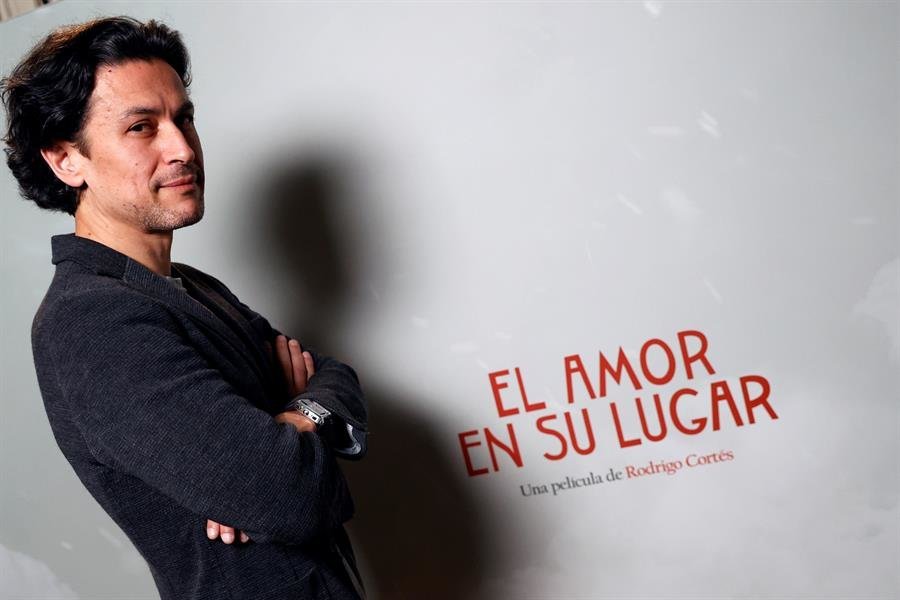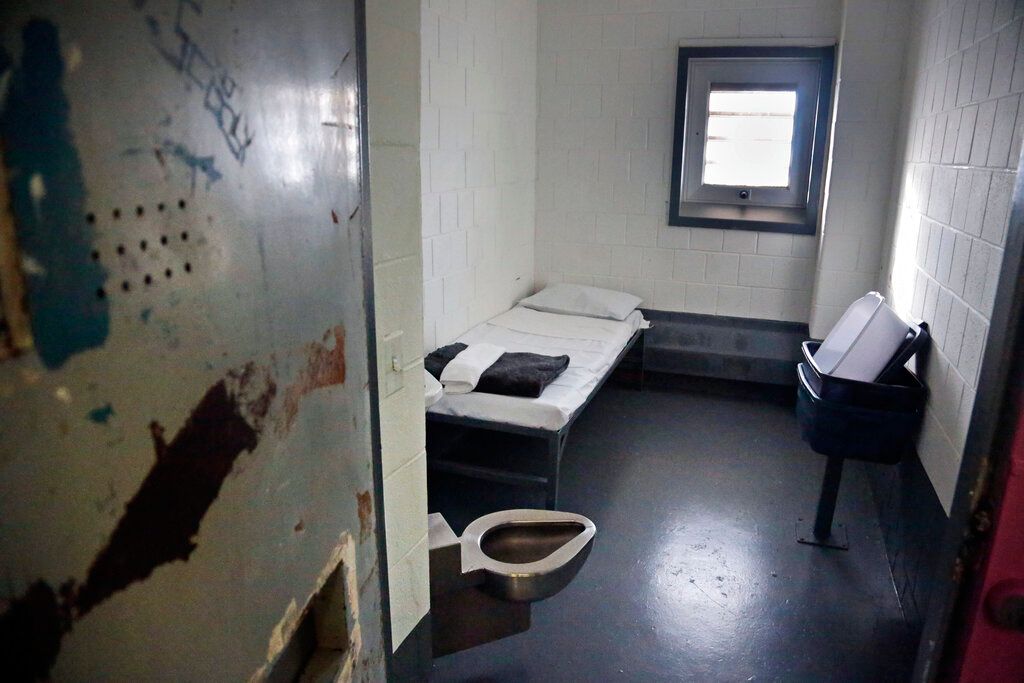No one can say that Rodrigo Cortes He is a complacent filmmaker, one of those who does not take risks. About a decade ago, he locked up Ryan Reynolds inside a coffin to build a surprising and suffocating thriller with the camera stuck for an hour and a half inside the box. Buried (2010) was the revelation of someone who had already shown his narrative talent in short films such as 15 days (2000) or his very vindicable debut in the feature film, Contestant (2007). Then he would dare to direct Robert De Niro Y Sigourney Weaver in Red lights (2012), and to accept a commission from a Hollywood production company that made him enter the world of supernatural youth horror, with Blackwood (2018), with Uma Thurman at the department.
Cortés is doing well, and there is no better example than his new film, released a few days ago: Love instead play with seemingly incompatible tools to deliver one of the most surprising, exciting, moving and virtuous experiences we have had this year inside a movie theater. The filmmaker makes us travel to the Warsaw ghetto in 1942, in the middle of the bloody Nazi occupation, and it begins with an amazing 14-minute sequence shot in which the viewer accompanies the protagonist. She is an actress who walks through the streets of the ghetto, dodging Nazi checkpoints and corpses on street corners, until she reaches a small theater where it is performed. Love looks for an apartment a musical comedy about two couples renting the same room, doors opening and closing, mess and festive songs that offer viewers a bit of escape, Jews praying to live a little longer.

The theater is a balm against tragedy
In the film, Cortés moves the camera from the stage to everything that happens behind the scenes, from vaudeville to Holocaust genocide, from laughter and songs to survival instinct. Pure paradox. Do you remember Ahead and behind? That eternal theatrical success of Michael Frayn, represented in Catalonia on several occasions and taken to the cinema by Peter Bogdanovich in the 90s (in the stupendous What a wreck of function!)? Well, the film by Rodrigo Cortés proposes an exercise in a similar style, but much more forceful in the forms, and exciting in the narration. The director opts for a story told in real time, which is also a beautiful love song in theater and art as a balm against tragedy.
It is important to explain, and Cortés himself clarifies it to us, that the work that is represented in the theater within his film is real: “He wrote it Jerzy Jurandot, an author who lived in the ghetto, to be represented within the ghetto. We tend to imagine it as a concentration camp, but few people know that inside the ghetto there were rich and poor, businesses and people who died without anyone caring, all the possibilities you can imagine. And there was also cultural life. And this work by Jurandot was very successful, “he points out.” The text and the lyrics of the songs were preserved, but not the music. We had to compose it again, quite a challenge, “he tells us.
“The play that is performed in the theater within your film is a real play written in the ghetto”
Actually, the same project was already a huge challenge for the filmmaker: “It seemed unapproachable, a very complicated puzzle, the kind of almost operatic challenge that would have enchanted Orson Welles, “he affirms.” To throw myself I think it has helped me a lot being a rider. Somehow, with experience editing movies, you already know which three-track circus you get into. When you are writing you already think about the direction and also about the editing, and you cannot cheat literary traps: you already anticipate what you will need and how to distribute the tentacles. While remaking Jurandot’s original work, I also had to write the parts that would be heard in the background while the camera takes us behind the curtain, or while two characters talk backstage. The original work was manipulated in a certain way because, since we did not show it in its entirety, we had to make it understood. And because a game is created in which the work is one thing, and life is another, but little by little they melt until they converge “.

Rodrigo Cortés became known with Buried, played by Ryan Reynolds. / EFE
Cortés has a international cast of interpreters not well known (“we wanted to give a lot of verisimilitude, to form a very real troupe”) where there are British, Irish, Swedish or a Danish, the protagonist, Clara Rugaard: “She is wonderful, an excellent actress, with a prodigious voice, mastery of the dance, capable of showing a storm of emotions. I went from being generous to capricious, from selfish to fearsome, from flying above everything to sacrificing oneself … “, says Cortés, who also explains that, before starting to shoot, he had to promote the rehearsal process, among other reasons, because the audience had to believe that the theatrical work that is represented in the film is real. “We were going to shoot a drama that happens while a musical is being performed, but, to achieve it, we had to work first and foremost on the play itself: on the staging, on the placement of the actors on stage, that the songs were learned without thinking, the dances … First I had to direct the play and then start playing with this element, qualify it within the film“.
We took advantage of the fact that we chatted with Rodrigo Cortés to ask him, now that time has passed and crimes have already prescribed, how he gets on directing stars the size of Robert De Niro, Uma Thurman, Sigourney Weaver, Cillian Murphy or Ryan Reynolds: “They were wonderful experiences As you say, time has passed, I am not on promotion, everything has been prescribed, but I can’t satisfy you with any gossip. I had heard about everything, people who spoke of the difficulty of treating them, of working with them, but I have never, never had a problem with an actor. Maybe it will happen tomorrow, but so far it has never happened to me, I have been lucky. I have achieved very little solemn filming environments, and I have found confident actors, who felt the guided ship. With everyone you have occasional friction, of course, it is inevitable. But they have been creatively and personally magnificent experiences, which I have thoroughly enjoyed. It was even easier, because when you’re a guitarist, the better the guitar, the better everything sounds. And the better the actor is, the less indications it is necessary to give him, “he explains.
Let’s not give up, because having a guitar like De Niro in your hands, played by mythical musicians, has to give you a bit of vertigo. Cortés is sincere: “I suppose it helps a lot to have a certain unconsciousness. You have to stop your brain. The Robert De Niro in front of you cannot be that of Taxi Driver, nor that of Wild bull, nor that of One of ours. Because then you are absolutely paralyzed. You can’t go to the set with a poster to sign for you. You cannot forget who you have in front of you, of course, but you have to deprive him of his status as an icon, and you have to put yourself to work. Look as we rolled Red lights On set we all called him Bob, because everyone calls him that. But at no time can you believe that you have earned this right: if you talk about him, you talk about Robert De Niro, because if I now tell you that I have filmed with Bob De Niro, you will think I am an idiot. That’s right. And I’ve always thought that you have to make sure that, if you’re an idiot, you don’t notice anything, “he says between laughter.
Returning to the film, we end with a summary of everything from Cortés himself: “For me, Love instead is, above all, the story of a group of actors that, as human beings, they want to live another half hour, and in this context sacrifice is as possible as selfishness or betrayal, humanly you cannot judge them. But as actors they will do what they have to do, which is to act out the show in the face of any setback. They are actors, and doing their job is neither a generous nor a heroic act, they are what they are. And that is as beautiful as it is tragic, even in the worst circumstances they will fight for the applause of the spectators. It is the light that, although flickering and very weak, continues to shine amid the darkness. “


